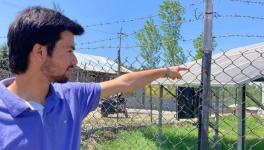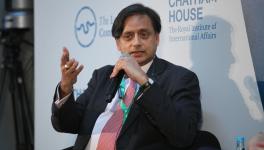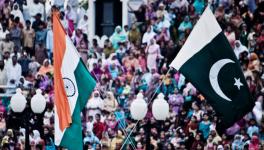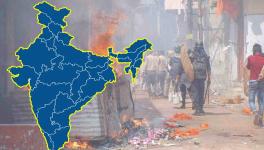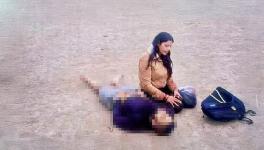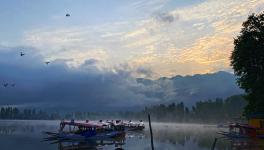Troubles in Kashmir Have Always Been Exacerbated by Successive Erosion of Art 370: Radha Kumar
The government has revoked the constitutionally-guaranteed special status of Jammu and Kashmir (J&K) and bifurcated it into two Union territories. Historian Radha Kumar, who was appointed in 2010 as one of the three interlocuters for Jammu & Kashmir by the Manmohan Singh government, has followed developments in Kashmir for over two decades. Her book, Paradise at War, is a comprehensive telling of the region’s politics. In an interview, she says: ‘Weak, corrupt and manipulated as the state’s political leadership might be, they provided a critical link to the promise of democracy.’ According to Kumar, the forced silencing of Kashmiris could end up strengthening dissidents in the Valley and explains why elected representatives—not just Governors—are critical to governance. Edited excerpts:
Abrogation of Article 370 is an old demand of the Bharatiya Janata Party (BJP) and the Rashtriya Swayamsevak Sangh (RSS). Nevertheless, what could have prompted the Narendra Modi government’s tearing hurry to change the status of J&K?
There are three elements in the current government’s actions: timing, force and stealth. Government spokespersons are yet to offer any credible explanation for the timing. Clearly, they did not want to wait until the Winter Session of Parliament, but there seems to be no reason for their haste. We are told, vaguely, that there was a major security threat, but not what kind of threat. Nor are we being told how the nullification of Article 370 or demoting J&K from a state to two Union territories will help.
Security was already a Union portfolio, so the Modi administration had full powers to make any security arrangements they deemed necessary. Nor have we been told why it was necessary to do it in this way, by arresting National Conference (NC) and Peoples Democratic Party (PDP) leaders and putting them in preventive detention, by flying 40,000 troops into the Valley and putting it under lockdown. Clearly, they anticipated protest at what is an extremely unpopular move and took the draconian step of sending troops to prevent them. This is not only an unacceptable threat of force to civilians, it is also a misuse of the Central Reserve Police Force (CRPF).
The decision to turn a state into two Union territories is unprecedented. It is being seen as an attack on the country’s federal structure. Would you agree with this view?
As far as I can ascertain, this is the first time a state has been demoted to a Union territory. Yes, this will set a very dangerous precedent since it would allow the government to do the same in other states where they have an axe to grind, without even presenting compelling reasons for such an extreme step—since the government has not presented a compelling reason in this case. I am extremely surprised that so many regional parties have supported the [Centre’s] move.
However, the greatest attack on the federal structure of the country is not from the J&K Reorganisation Act, but in the President’s Order—or at any rate, in the government’s interpretation of the order. According to the government, the “Legislative Assembly”, as referred to in the Presidents Order, can be substituted by the “Governor”. But the Governor is an appointee of the President, and represents the Indian Union in the state. It is the Legislative Assembly that represents the will of people of the state. One cannot substitute the other, since each is supposed to act as a check on the other. That is the core structure of our federation as defined in the Constitution. In other words, it is the elected lawmakers of J&K, and not even the elected government, whose consent would be required for Article 370 to be altered in any way.
What happens to the J&K Constitution now? Does the Presidential Order invalidate it? Or is it only the Legislative Assembly that can do so?
At a practical level I, too, am quite worried. How long is there going to be a massive security presence in the populated areas of the Valley? Between 2004 and 2013, we saw steady minimisation of troops along with a steady fall in casualties. From 2014, we saw an increase in violence but the heavy security footprint was still kept low. Now, if the goal is to prevent protests, we may see continuing heavy security, with further alienation of the Kashmiris. In the long term, Union territories have generally been small areas with small populations, for the good reason that large populations are not easily governed by administrators alone, even if they are in the form of elected panchayats. Elected representatives and their cadre provide an additional layer of governance which is critical.
What kind of constitutional precedent is the Modi government setting, given that special rights have been given to other states as well?
The Modi administration argues that this is an exceptional case, but its representatives have not provided any legislative safeguards that define what constitutes ‘exceptional’. Clearly, the general message is that special rights and the safeguards to them are not inviolable.
Is the rush to invalidate Article 370 linked to US President Donald Trump having said twice in public that PM Modi had asked him to mediate in the Kashmir dispute?
I would hope not—Trump’s remarks were just foolish—but who knows? This goes back to the timing issue.
The decision to divide J&K into two UTs, Ladakh and J&K, will have its own fallout because Ladakh has not been given a legislature. The people in Jammu have been clamouring for separate statehood and they may also not want to accept this decision easily.
The people of Leh [one of the main cities of Ladakh] are happy with the UT status and will not mind not having a legislature, for now at least. But in Kargil, which is also in Ladakh, and has a majority Shia Muslim population, the sentiment is likely to be divided. As for Jammu, it is only in the Hindu majority districts—which are few compared to the Muslim majority districts—that there is large support for separation from the Valley. The Muslim majority districts, which number eight out of 11, are far more numerous but have relatively little political power. They do not have much voice, but I imagine that many of their residents will be distressed and worried by these moves.
The average Kashmiri is shell shocked. They have not been able to voice their opinion publicly so far. Are they going to feel more alienated now?
Absolutely.
Now that all key decisions will be taken in Delhi, how do you see the state police force’s response, given that they will now have to take orders directly from Delhi?
I was shocked to hear a BJP spokesperson on NDTV actually say that the entire Valley, including the police, had only one mindset [and that they are] not to be trusted. This, to a force that has suffered tens of thousands of casualties over the past 30 years, on an increasing scale since the Modi administration took power.
The public in India largely considered Article 370 as a mechanism not for integration but separation of J&K from the rest of the country, while they regarded Article 35A as discriminatory to non-Kashmiris. They are seeing these developments as a great victory for the Modi government and for the people of India. What explains this dissonance in perceptions and narrative?
The public at large have been fed selective information for a very long time. I wonder how many know that Article 370 codified the provisions of the Instrument of Accession and were the terms on which the state acceded to the Union? Far from being a force of separation, it was the force that brought J&K into the Union. Troubles in the Valley have always been exacerbated by successive erosions of Article 370. This does not mean that it should not be amended; both to make permanent those provisions that conform to the Instrument of Accession and to update or modernise those provisions that are archaic. But that can or should only be done through consultation and the decision of the state’s Legislative Assembly. It does not look as if we are going to have elections in J&K any time soon, though they should have been held a long time ago.
Whatever remained of the ‘middle ground’ in J&K seems to have been lost. Many Kashmiris say they never enjoyed any benefits of their special status. What do you feel?
Yes, the middle ground has been wiped out by this action. I do not agree with the cynicism that says that this is nothing new. Weak, corrupt and manipulated as the state’s political leadership might be, they provided a critical link to the promise of democracy. As long as that promise was there, there was some space for reform and improvement. Now that promise has gone, with direct rule from the Centre.
The demotion of J&K regions to a Union territory has been done in India’s only Muslim majority state. What signal will this send to Muslims?
Well, the hate speech and lynching that have grown exponentially over the past few years have already, and continue to, send a frightening signal to Muslims in our country. This step only reinforces that signal.
Is this the end of existing political parties in the Valley? And where does it leave the Hurriyat [All Parties Hurriyat Conference, a pro-Kashmiri-separatism group]?
A situation of forced silencing could as well strengthen political parties and dissident organisations such as the Hurriyat.
What reaction do you expect from Pakistan? Already, the US has been calling for restraint from both India and Pakistan.
In a lighter vein, I find it delightfully ironic that this move has led the Pakistani government to accept Article 370—at least indirectly—which up until now it had refused to do. So now Pakistani leaders are outraged by an Indian government overturning that very constitutional arrangement that they had up to now denounced as illegal and invalid.
Rashme Sehgal is a freelance journalist based in Delhi.
Get the latest reports & analysis with people's perspective on Protests, movements & deep analytical videos, discussions of the current affairs in your Telegram app. Subscribe to NewsClick's Telegram channel & get Real-Time updates on stories, as they get published on our website.











